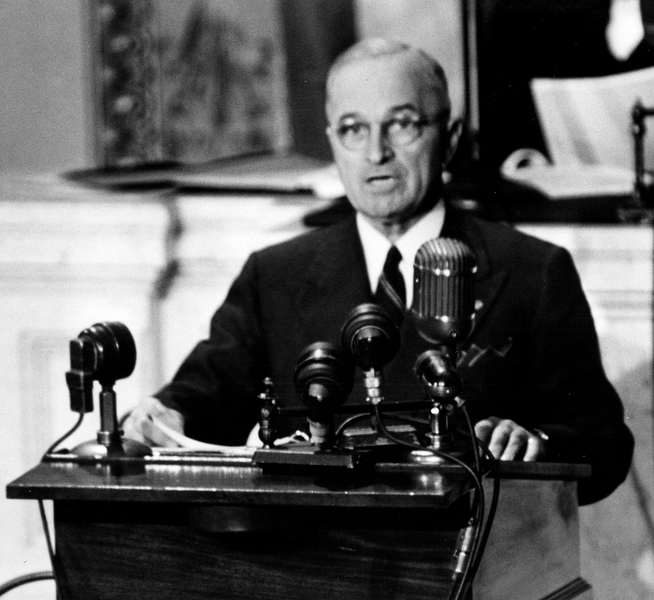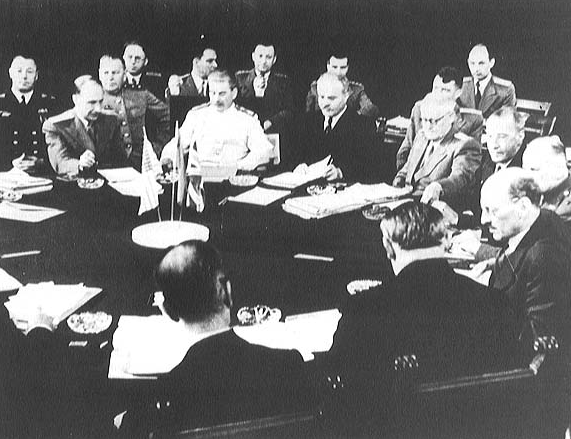
Truman's congressional speech (Truman Library, 12 March 1947)
Cold War
Iowa Corn Field (The Kinnick Project, N.d.)
Rising Tensions
Following European victory in World War II, Allied nations met at the Potsdam Conference where they debated how to divide Europe. There Soviet leader Joseph Stalin's plans to expand communism conflicted with U.S. President Harry Truman's desire to preserve democratic principles and put the two former allies at odds.

"Joseph Stalin (right center, rear in white uniform) listens in on the discussions at the Potsdam Conference in 1945 following the German surrender." (Library of Congress, 1945)
"The problem of how to cope with [the Soviet] force [is] undoubtedly the greatest task our diplomacy has ever faced and probably the greatest it will ever have to face. It should be point of departure from which our political general staff work at present juncture should proceed."
-George Kennan, American diplomat in Moscow, warned President Truman about the need to contain communist aggression. (Long Telegram, National Archives, 1946)
In 1947, President Truman asked Congress for a U.S. policy, later called the Truman Doctrine, to contain expansion of Soviet communism. This policy intensified their preexisting conflict and sparked the Cold War, a decades-long political struggle characterized by rising tensions and an arms race that put the two superpowers on the constant brink of atomic war in their struggle for global influence.

Truman's congressional speech (Truman Library, 12 March 1947)
"It must be the policy of the United States to support free peoples who are resisting attempted subjugation by armed minorities or by outside pressures."
-Truman Doctrine excerpt (Truman Library, 12 March 1947)

(The New York Times, 13 March 1947)
"My [Cold War] memories go back to school when we would have to leave our classroom, go out into the hallway, and crouch down seated against the wall with our heads covered preparing for a nuclear blast. So as a youngster, [I] was terrified or certainly leary of anything that was Russian… I remember feeling anxious and concerned when I saw the [Soviet leader's] motorcade traveling up highway 141 to Garst's farm."
-Ann Martin recalls the Cold War and Khrushchev's 1959 Iowa visit. (Personal Interview, 4 Jan. 2022)